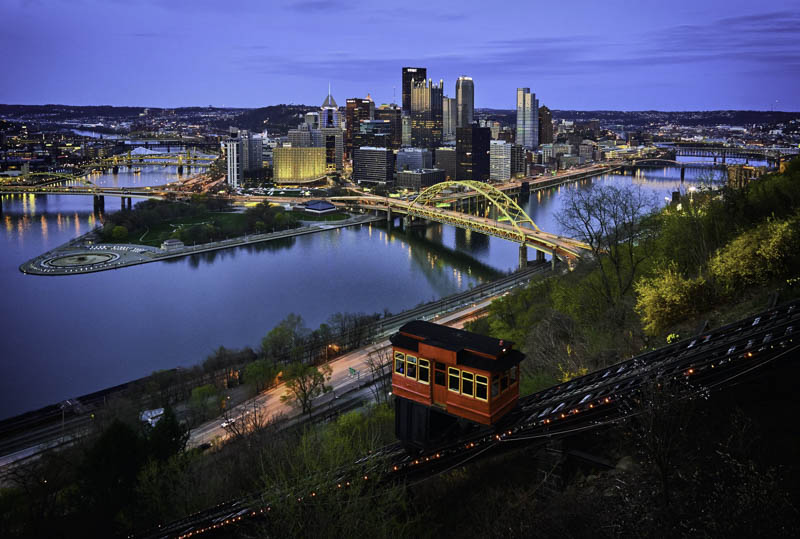Home » Cost Guides » Pennsylvania Cost Guides » How Much Does it Cost to Build a House in Pittsburgh?
Pittsburgh is the second-largest city in Pennsylvania. Historically, more than 300 steel-related businesses thrived in the city, and around 446 bridges were constructed, earning it the nicknames “Steel City” and “City of Bridges”. The city also has over 1,600 technology firms, which generate a total of $20.7 billion in payrolls. As of 2021, seven Fortune 500 companies are headquartered in the area, including PNC Financial Services, PPG Industries, and Wesco International. Other than these, Pittsburgh was home to many famous personalities, including actors Michael Keaton, Zachary Quinto, and Fred Rogers, rapper Wiz Khalifa, and artist Andy Warhol.
Pittsburgh was a recurring contender on the Economist’s Global Liveability list for several years, from 2005 to 2018, as either the first or the second U.S. city. This recognition resonates with the current status of the city even after almost two years with the pandemic. BestPlaces reports that if the U.S.’ average score for the cost of living is 100, then the cost of living in Pittsburgh would be around 87.5, indicating the city is cheaper than the national average. Pittsburgh’s average is also lower than Pennsylvania’s. Niche ranks the city in several categories, such as 11th Best City for Young Professionals, 23rd Best City to Buy a House in America, and 30th Best City to Live in America.
With this information, prospective project owners and home developers might ask: how much does it cost to build a home in Pittsburgh?

The Cost of Building a Home in Pittsburgh
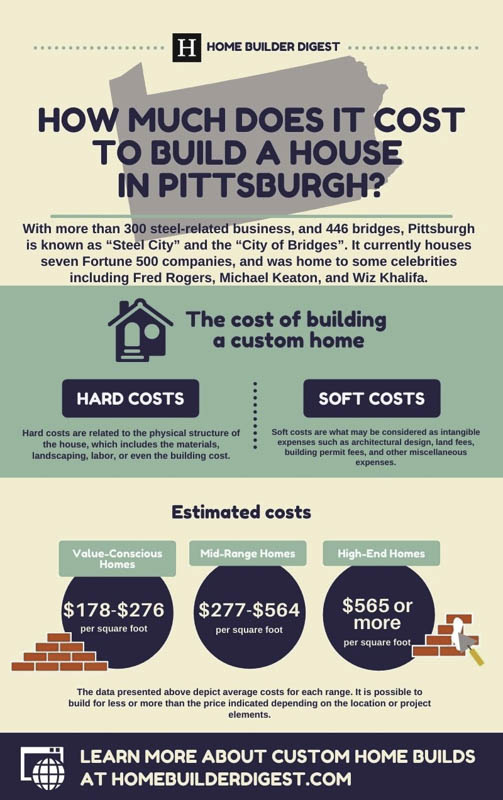
Nationally, building a 2,000-square-foot home costs an average of around $300,000 according to Forbes. A home of the same size in Pennsylvania would cost $302,200 to construct on average. New homeowners may expect to shell out at least $200 per square foot for their new home in Pittsburgh. The COVID-19 pandemic shifted the city’s housing market. People are now buying more homes than ever before. Hopeful buyers joined bidding wars for homes, and some even forgo inspection, which pushed the prices to increase more than 20% since 2016.
For a metro with a population of more than 1,000,000, Allegheny County, which includes Pittsburgh, is the most affordable urban metro county to rent a home, and the second-most affordable city to buy a home in. Downtown Pittsburgh apartments saw an increase in young tenants early this year, and LendingTree reported that 57.28% of mortgage requests in Pittsburgh came from millennials. Moreover, the city reflects the county results because Realtor states that buying a starter home in Pittsburgh is still cheaper than renting by at least 38.3%, or around $585. Additionally, home construction in the city stood strong in 2021, with homes of every style being built, including patio homes for multi-generational living, $250,000 townhouses, and $850,000 luxury farmhouses.
The cost of building a new custom home in Pittsburgh depends on the labor, materials, and professional services required. Some of these costs fluctuate independently from each other, such as the foundation, framing, exterior, and interior finishing. There are also the fees the homeowner or contractor may need to settle before proceeding with the construction process. These may include architecture and design fees, building permits, land fees, plumbing, electrical, and other miscellaneous fees that the city or state may require.
Hard Costs
The hard costs are expenses that fund the physical structure and construction of the home. These costs typically include the materials, labor, and even the total building value, and may vary with the quality or even the waiting time. For Pittsburgh, a new custom home starts at $178 per square foot for basic or standard construction. A middle-tier home can cost around $277 per square foot, while a luxury or high-end home starts at around $565 per square foot.
Figure 1. Typical cost breakdown of a single-family home constructed using the conventional method, according to Home Builder Digest. Image Source: National Cost Guide.
The cost of lumber skyrocketed all over the U.S. early last year. In early 2020, a 2×4 piece of lumber cost less than $3, and lumber is one of the most common types of wood used for framing houses. Prices increased more than 300% in 2021, with the wood board reaching $10. The steep cost of this material managed to increase the prices of new homes by thousands of dollars, and homebuilders are not the only people purchasing lumber. The market also includes remodeling and renovation projects, with people building additions, decks, and fences. With the lumber shortage, organizations were established to repurpose fallen urban trees. Rather than discarding the trees as waste, which also costs the city government for the labor and machinery, the “reforestation hub” model upcycles dead trees into various wood products like flooring and construction materials. These institutions, namely Cities4Forests, Cambium Carbon, and the Arbor Day Foundation, are public-private partnerships that serve to save the city government money and generate revenue to plant and maintain urban forestry.
For the home exteriors, specifically roofing, asphalt shingle roof overlay installation can cost anywhere between $198 to $294 per 100 square feet, while cedar roofing installation costs from $480 to $631 per 100 square feet. Metal roofing installation can be anywhere between $682 and $892 for 100 square feet. As for the home systems, installing a central air conditioning unit in Pittsburgh back in 2019 would range from $4,500 to $9,000, or an average of $7,000.
Soft Costs
Soft costs are expenses beyond the physical construction of the home, such as architectural design, pre-construction, land development, and permit fees like building, plumbing, water, and others.
Cost of the Land
Getting the perfect property is crucial in the process of home construction. Generally, prices may vary with several factors like distance from metropolitan areas, view, amenities, and even land topography. The average listing price on Zillow for Pittsburgh is $208,154, or an average of $16 per square foot. Though this value may still increase depending on the development status of the land, since some listed properties may be unimproved for residential purposes. Currently, the least expensive property on the market is a $4,000 undeveloped land around 5,227 square feet.
Permits and Other Fees
Building and other permits may be filed through the OneStopPGH counter as hard copies, or online on OneStopPGH. For the building permit fees, the base cost is $5 for every $1,000 of the total construction value, while the minimum permit value is $100 for residential projects. The application filing fee is 40% of the total permit cost and is also non-refundable. Pittsburgh also has a technology fee, which will apply to applications filed online.
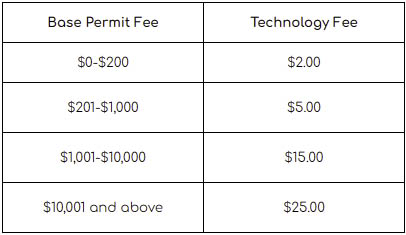
Starting March 1, 2022, the Pittsburgh Department of Permits, Licenses and Inspections will be implementing the Accelerated Plan Review fees, which is an option for people applying for fire alarm and fire suppression permits. For an additional fee of 1% of the project cost, applicants can speed up the process by at least five times than the standard review
Architecture and Design Fees
Architecture and design fees vary with the size, scope, and complexity of the construction project. The client’s preferences, needs, and lifestyle also contribute to the overall or final design. Some projects may be simple and straightforward, while others may require extensive research, attention to detail, and consultation with industry professionals. Typically, architect rates range anywhere between 5 and 20% of the total construction cost. For Pittsburgh, Architect Fred M Fargotstein shares that architect fees are generally around 15 to 20% of the total project cost.
How do the custom home building costs in Pittsburgh compare to other nearby cities?
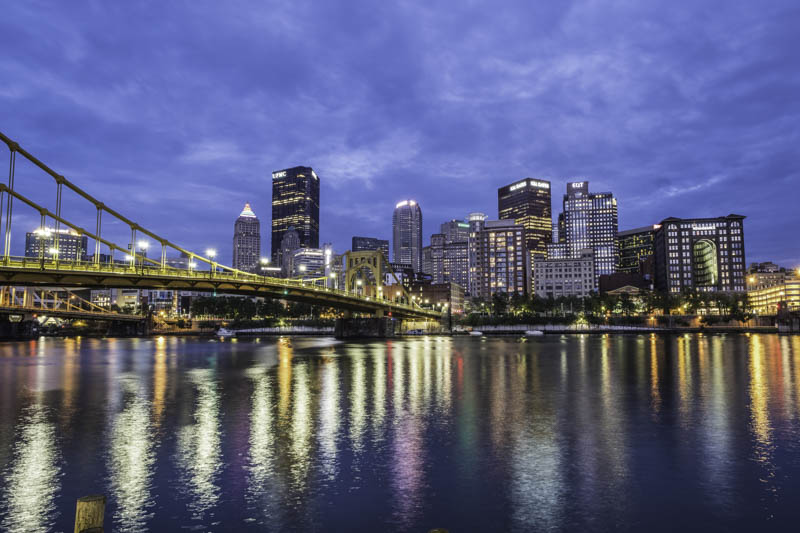
The cost of building a new home in Pennsylvania is 1% lower than the national average and is cheaper than 23 states. For Allegheny County, Realtor reports that the median listing price in the area for January 2022 is $215,000, or $148 per square foot. The average price homes sell at is $219,900, and with a sale-to-list price ratio of 99.68%, the area is considered a buyer’s market. With a greater supply of homes than the demand, homes may spend around 62 days on the market. Pittsburgh’s median home listing price for the same month is $225,000, or around $154 per square foot. Houses are sold for 1.19% lower than the listing price and it is also a buyer’s market. Compared to Allegheny County, however, homes in Pittsburgh may spend 66 days in the market before it gets sold.
Some of the areas near Pittsburgh include Dormont, Brentwood, and Wilkinsburg. The Dormont housing market is considered somewhat competitive by Redfin. The median sale price is $260,000, with an average of 55 days on the market. For Brentwood, the median home listing price is $850,000, which spends an average of 10 days on the market. Homes in the area get sold for 3% higher than the listing price, while more in-demand properties can sell for 7% higher, making this area a very competitive market. Lastly, for Wilkinsburg, home prices in the area decreased by 43.1% compared to the previous year, with the median at $148,000 as of January 2022. On average, homes in the area spend 84 days on the market, with some selling 3% lower than the original listing price.
What Leading Custom Home Builders and Architects that Serve the Pittsburgh Area Say
EcoCraft Homes, Inc.’s Brandon Fury discusses the estimated price per square foot for Pittsburgh. Within the 60-mile radius of the city, full-service homes can range from $190 to $300 per square foot, with a $12,500 allowance for utilities, but does not include land, garage, or any site-specific developments like demolition. For clients outside of the area, EcoCraft Homes offer a direct buy program, where the customer will be responsible for hiring the general contractor, lot preparation, foundation, permitting, and any other finishing work that would need to be done before the home is delivered. Based on the design, complexity, finishes, and freight distance of 100 miles, this set-up ranges from $140 to $250 per square foot. In general, projects may cost around $500,000 to $850,000, including move-in-ready homes. For the current housing construction industry in Pittsburgh, Fury shares that the firm had to contend with the rising material costs across the board. With Pittsburgh still going in an upward trend, he advises clients to plan ahead so they will not be stuck in a tight timeline trying to hit a market or certain interest. Other than that, working with a company that understands the volatility of the market and has created a system that allows for flexibility or changes will be beneficial.
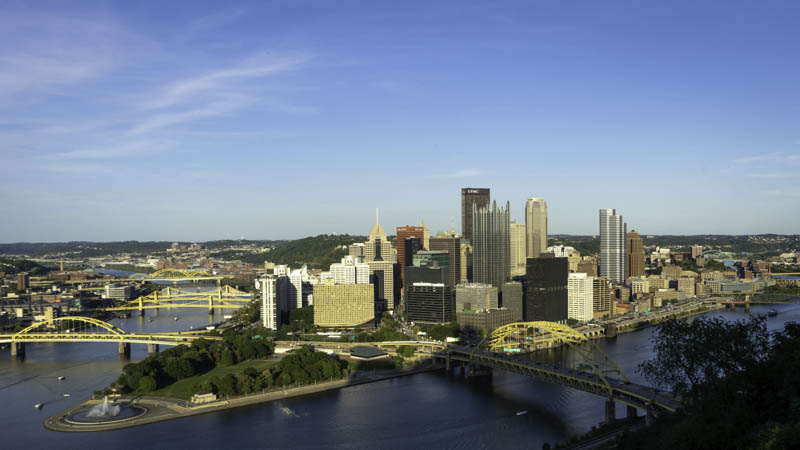

Dante Fusaro of Phillip Wentzel Custom Homes shares the price range of homes in the Pittsburgh area. For basic or value-conscious construction, homes start at $225 per square foot. A mid-range home costs around $300 per square foot, while a high-end or luxury build starts at $500 per square foot.
Peter Kreuthmeier of Loysen + Kreuthmeier Architects shares that their estimates from last year or last week may already be out of date. With the unstable material prices and lead times, resolve and flexibility are important in the industry. For the costs, it would be more appropriate to discuss time, such as “is the intent already nailed-down,” or “will it take time to explore and develop?” Or if there is base information like plans for existing buildings, or should it be developed, too. With the design process, it is worth exploring alternative solutions, which is also a function of the collaborative process and not the price point of the finished product. The construction industry is divided into code-driven, which notches up over time, and demand-driven. Kreuthmeier gives one of their projects in Western Pennsylvania as an example, where it had super-efficient walls and windows, and has half its roof covered in photovoltaic panels. Going beyond code minimums was an investment and it can pay dividends as with the said house. Material quality has an implication that the better the quality, the longer it lasts. Kreuthmeier advises project owners to team up with collaborators they are comfortable with.
The Future of Pittsburgh’s Residential Construction Industry



Factories in Pennsylvania are still struggling with staffing, and this includes manufacturers of steel and parts for heavy machinery like forklifts and cranes. The start of the pandemic in 2020 forced companies to lay off employees due to low sales and orders, but the more relaxed restrictions of 2021 drastically increased the demand for certain products. This unprecedented boom created an increase in manpower competition, with people applying for positions but not showing up to the interview, or employees resigning for better-paying jobs. Compared to other industries, however, the average pay in the manufacturing industry lags behind other sectors. Industry professionals are also retiring due to the pandemic, making in-person training slowly decline. With fewer people working in factories, some have begun to request higher wages, which would increase the item cost.
The Pittsburgh city council is also looking to improve the city’s old housing, which is considered energy-inefficient and even unaffordable. This move will help stabilize neighborhoods and even improve the housing inventory, in addition to easing the burden of housing costs, which is paid for by more than 23,000 households.
For Downtown Pittsburgh, development priorities are shifting due to the awaited 50 development projects in the area amounting to $2.5 billion. Compared to pre-pandemic levels, Downtown has recovered 85% of its visitors, and around 36% of its employees. Older buildings in the area are expected to be converted into market-rate or high-end housing to accommodate the residential growth. Around 20 businesses were opened in response to the increasing local population and will welcome many more, including Target, which is set to open this year.
Considering building a home in Pittsburgh?
Contact us for a free consultation

